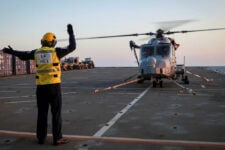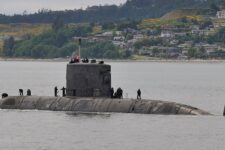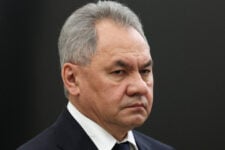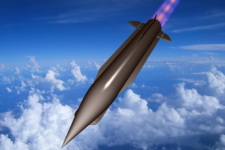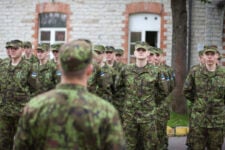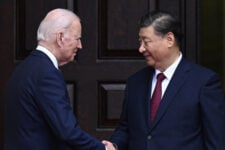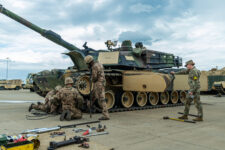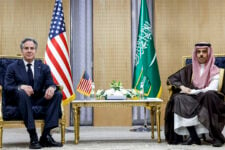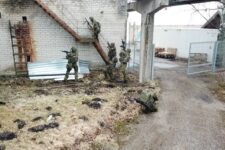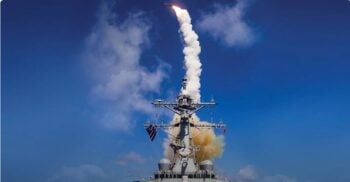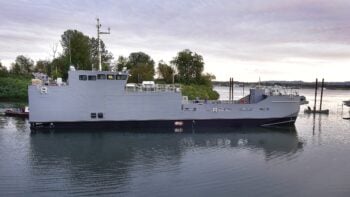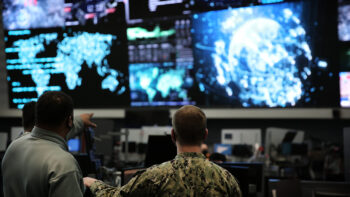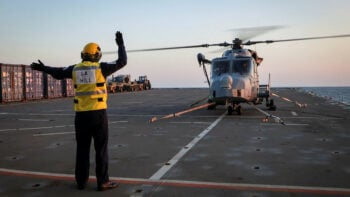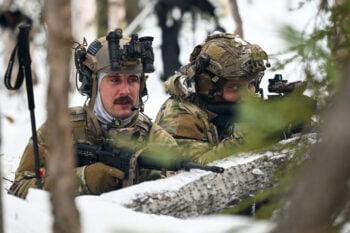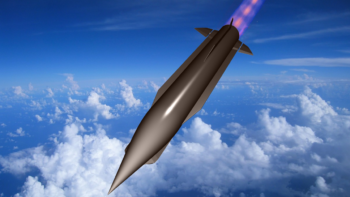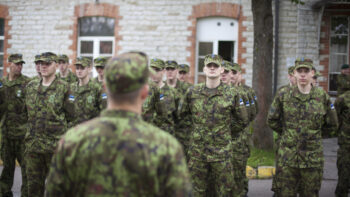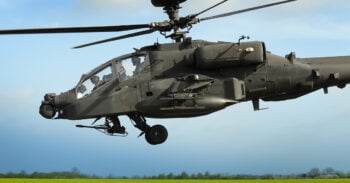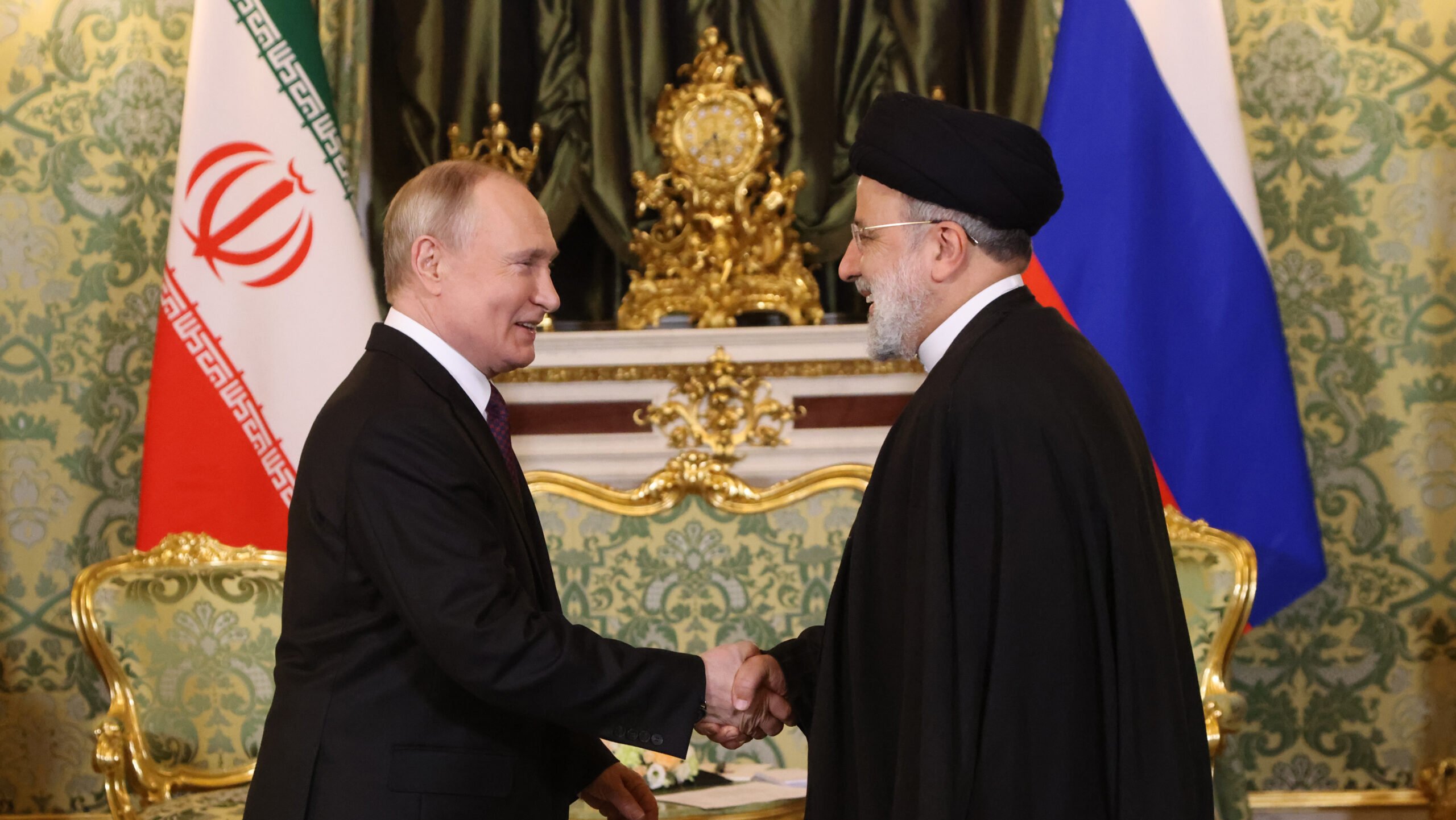
Russian President Vladimir Putin (L) greets Iranian President Ebrahim Raisi (R) during their meeting at the Grand Kremlin Palace, on December 7, 2023 in Moscow, Russia. (Photo by Contributor/Getty Images)
BEIRUT — As wars rage in Gaza and Ukraine, senior US military officials sounded the alarm to lawmakers about the renewed relationships between China, Russia and Iran in both the Middle East and Africa, suggesting alliances of geopolitical convenience intertwining the three could threaten America’s position in both regions.
“I’m very concerned about this renewed relationship between Russia, China and Iran,” US Central Command head Gen. Michael Kurilla told a House Armed Services hearing Thursday. “What we’re seeing is Iran is reliant on China and Russia is reliant on Iran.”
Kurilla explained that China buys “90 percent” of Iran’s oil, which is sanctioned by the US. In return, China uses Iran’s influence as part of an effort to “replace the US as one of the dominant forces in the Middle East.”
“So in effect, China is funding Iran’s subversive and malign behavior in the region,” he said.
Iran, meanwhile, has provided thousands of one-way attack drones to Russia for its war in Ukraine and now has even “built a factory in Russia” to produce more locally, Kurilla said. The general said he couldn’t discuss in an open setting what Russia is providing Iran for this help, but said that it was “concerning.”
In his testimony Kurilla didn’t get complete the triangle, but US officials contend that China has provided at least non-lethal aid to Russia since Moscow’s invasion of Ukraine in February 2022, and just prior to the invasion Russia’s Vladimir Putin and China’s Xi Jinping announced a “no limits” partnership.
Earlier this month, Iran conducted maritime exercise with Russia and China, dubbed as Maritime Security Belt. The exercise reportedly took place in the North Indian Ocean and the Sea of Oman.
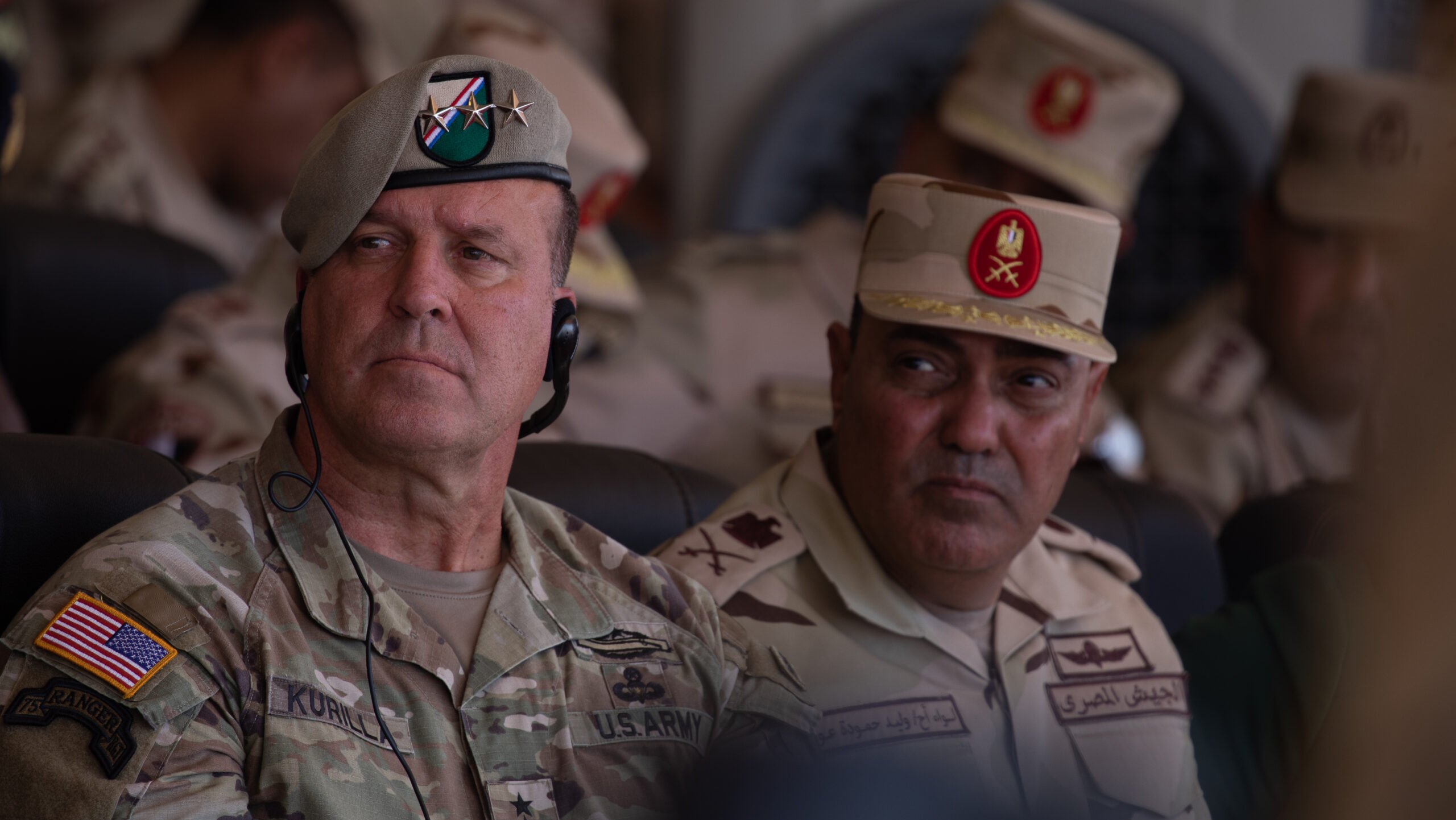
U.S. Army Gen. Michael Kurilla (left), commanding general of U.S. Central Command, visits Egyptian Armed Forces leadership at a Joint Combined Arms Live Fire Exercise during Bright Star 23, at Mohamed Naguib Military Base, Egypt, Sept. 14, 2023. (U.S. Army Photo by Sgt. David Campos-Contreras)
Similarly US Africa Command chief Gen. Michael Langley said the US also should be worried about Russian and Chinese increased footprint in Africa.
“We should be extremely concerned because I would say that both are very, very much exploitative when possible, but they are also coercive when necessary,” he said. “They’re trying to get what they want. They’re trying to replace the West and, moreover, the United States in our access and influence across this crucial continent.”
Langley said Beijing and Moscow are offering “shiny objects” to “our African partners.” The US counters those temptations, he said, with a “whole government approach with USAID and the State Department” as well as the military there.
Back in the Middle East, Kurilla said the region “faces its most volatile security situation in the past half century” in the wake of Hamas’s Oct. 7 attack on Israel, Israel’s massive, deadly counter-attack and the months-long campaign of Yemen-based Houthis to strike at commercial shipping targets in the Red Sea.
“The events of [Oct. 7] not only permanently changed Israel and Gaza. They created the conditions for malign actors to sow instability throughout the region and beyond,” Kurilla said.
He added that Iran, which backs Hamas and the Houthis as well as Hezbollah in Lebanon, has exploited “what they saw as a once-in-a-generation opportunity to reshape the Middle East to their advantage.
“Iran has worked for decades to encircle the region with its proxies. And in the past six months, we have seen every proxy and the Iranian threat network operationalized in Iraq, Syria, Lebanon, Gaza, the West Bank, and Yemen,” he said. “Iran’s expansive network of proxies is equipped with advanced sophisticated weaponry, and threaten some of the most vital trade in the world with global and US implications.”
Kurilla stressed that Iran knows that its “decade-long vision cannot be realized if countries in the region continue to expand integration with each other and deepen their partnership with United States.”
He said that American “partners” in the region “are committed to advancing the region, and the United States remains their partner of choice for now.”
The US leads two operations in the Red Sea: the defensive Operation Prosperity Guardian, meant to protect ships from incoming Houthi missiles and drones, and Operation Poseidon Archer, an offensive series of strikes undertaken along with the UK on Houthi targets in Yemen. Kurilla said a third effort is aimed at interdicting Iran’s supply of arms to the Houthis.
Prosperity Guardian’s international membership has fluctuated since its launch in December, but Kurilla said Thursday it currently has 24 partners, 17 of which were “public.”
RELATED: Crowded waters: Who’s doing what in the international hot spot of the Red Sea
But it’s Iran that’s the source of much of the problem, Kurilla said.
“Iran must be compelled to cease their malign behavior and their actions of directing and supplying funding and training these proxies,” he said. “We want to deny [the Houthi’s] ability to be resupplied. That will take a whole tougher and actually international effort much like we did with counter piracy, to be able to go after that because only two ships can resupply the vast majority of the equipment that we’ve destroyed so far of the Houthis.
“We have to stop that we have to increase the international effort to be able to do the inspections on the vessels that are going into Hodeidah [port in Yemen],” he said. “We need to isolate the Houthis in the information environment, we have to impose costs on Iran. So there’s consequences to their behavior.”
TAI exec claims 20 Turkish KAAN fighters to be delivered in 2028
Temel Kotil, TAI’s general manager, claimed that the domestically-produced Turkish jet will outperform the F-35 Joint Strike Fighter.

